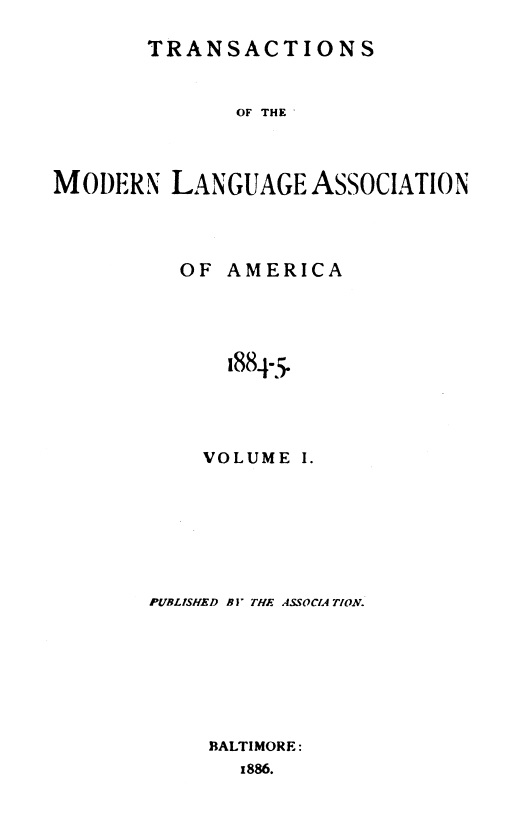No CrossRef data available.
Article contents
The Factitive in German
Published online by Cambridge University Press: 11 February 2021
Extract
The design of the present article is a discussion of some points of special interest in the factitive construction in German and its comparison with that of the same case in the cognate languages; this will best be attained by an historical tracing of this construction as far back as possible and expedient, and by showing its later and special development on German soil. Clearness will necessitate a discussion of the nature and functions of this case and its relations to the accusative (to which it is now more nearly allied) and to the other cases. Inasmuch as the factitive case forms part of the predicate it will involve the consideration of the predicative idea, or the relation of subject, verb and object to one another, since these three ideas, according to Becker, the idea of action expressed by the verb, the idea of being, either as agent of the action, as in case of the subject, or as objective and terminal point of the force of the verb, as in case of the passive object, form when united that antithesis of action and being out of which the sentence is developed. The intimate relation of the active subject and passive object appears in that “what is predicated of the subject as an action, may be predicated of the object as suffering,” whenever it becomes subject, but always so that it forms a direct antithesis to the real agent. Both are again intimately connected with the verb as its support or immediate complement and modifier. The subject, however, always represents something general and indeterminate while the verb, either in itself or with its complement or modifier, i. e. the predicate, is specific. It would appear, then, that the verb contains not only the idea of motion or the active force in the sentence, but it also unites in itself the additional idea of substance, not necessarily appearing as substantive, but rather in the motion which of itself forms the synthetic bond between the subject and this substantive element of the verb. These two elements of the verb, the substantial or predicative and the verbal or copulative, form the predicative idea of every sentence. Whenever the verb contains more of the substantial element it becomes firmer and self-supporting and we call it intransitive, but when the verbal element predominates and the substantial element is to a greater or less degree eliminated, then the verb seeks support and durability in a new substance, the object becomes the necessary complement, and we call the verb transitive; hence the frequent transition from one State to the other (cf. Rumpel in Hübschmann Zur Casuslehre, p. 59.). The very nature of the transitive verb requires an immediate complement for the completion of its sense, which the self-reliant intransitive verb can dispense with, though capable of modification by an added substantive. Still a third class of verbs, which do not form a complete thought even when qualified by an object, require besides the regular object an additional complement or modifier for the completion of the predicative idea. This may properly be called the verbal objective to the object; it is also called essive or predicative case, better known as the factitive. The nature of this additional complement, its relation to the regular object and the verb must claim our attention for a moment before we proceed to special cases.
- Type
- Research Article
- Information
- Transactions of the Modern Language Association of America , Volume 1: Transactions 1884-1885 , 1885 , pp. 37 - 56
- Copyright
- Copyright © Modern Language Association of America, 1885


